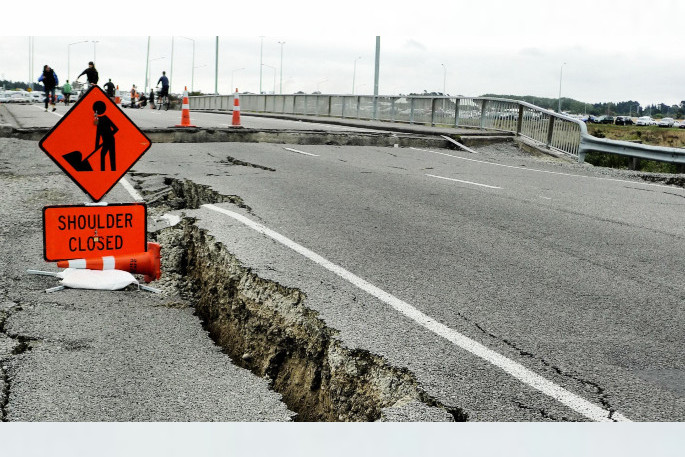Would you remember to drop, cover and hold during an earthquake?
Researchers recently surveyed Kiwis about their previous experiences and knowledge about earthquakes, to see if this affects what they would do if they got a heads up from an early warning system.
They found that doing exercises or drills did not seem to prompt the right actions for earthquake warnings, such as drop, cover, and hold.
Instead, the more personally relevant a person's experiences were – like having a family member previously injured from a quake – the more likely they were to intend to take a useful action when they got an alert.
'Warning systems are essential for providing people with information so they can take protective action in response to perils,” says the researchers led by Julia Becker.
'Systems need to be human-centred, which requires an understanding of the context within which humans operate. Therefore, our research sought to understand the human context for Earthquake Early Warning in New Zealand, a location where no comprehensive EEW system existed in 2019 when we did this study.
'We undertook a survey of people's previous experiences of earthquakes, their perceptions of the usefulness of a hypothetical EEW system, and their intended responses to a potential warning - for example, drop, cover, hold, staying still, performing safety actions.”
In the study, the researchers group responses from certain regional areas together, into Auckland, Hawke's Bay/Gisborne, Wellington and Otago/Southland.
Location in this way acts as a proxy for earthquake experience, as only two regions had experienced strong shaking from earthquakes in the previous 10 years; notably, the Canterbury earthquakes in 2010–11 that affected wider Canterbury and the 2016 Kaikoura earthquake for which the Canterbury and Wellington regions experienced strong shaking.
The authors say early warning systems often offer only a couple of seconds of warning, so it's important people respond correctly, and that their research could inform future public education initiatives.
The research paper which can be viewed by clicking here, concludes with saying that early warning systems require not just technology but also knowledge and capacities to respond to those warnings.
Research findings reinforce the important role that previous experience plays in earthquake-related perceptions and behaviours, as well as inconsistencies in this role at least partially resulting from the complexities in the different possible types of experience.
Where possible, public communication and interventions could take into consideration different levels and types of experiences of the audience, for greater success.
While this will work more effectively with smaller audiences, the regional differences found in the study suggest that some tailoring of public education around experiences at a regional level could further improve the effectiveness of interventions or education.
To read the full research paper, click here



0 comments
Leave a Comment
You must be logged in to make a comment.